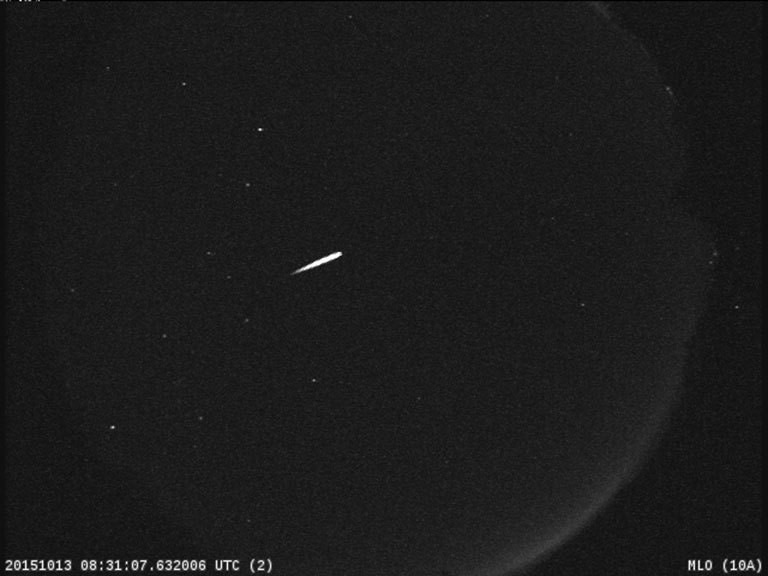October 2024 Orionid Meteor Shower
 |
| Credit: NASA |
The Orionid Meteor Shower can be viewed from October 16 through 26 and peaks during the early mornings of October 20, 21, and 22, 2024.
Fall’s best meteor shower produces up to 20 meteors per hour when the Orionids peak.

When is the best time to watch Orionid meteor shower?
The best time to look for Orionid meteors is 4 a.m. when Earth encounters the densest part of Halley’s Comet’s debris stream.
How to watch the Orionid meteor shower:
Observing is simple: set the alarm a few hours before dawn, go outside and look up in the direction of the constellation Orion. No telescope is necessary to see Orionids shooting across the sky.
It is important to be far away from artificial lights. Your eyes can take up to 30 minutes to adjust to the darkness, so allow plenty of time for your eyes to dark-adapt.
Where to look for the Orionid meteor shower tonight:
Find Orion’s noticeable three-star belt in the night sky, then follow his raised arm to his elbow to see the origination point of the Orionids.
Orion will be almost straight above the viewer’s head 1 to 2 hours before sunrise.
The Orionid meteor shower is named after the constellation Orion because the meteors appear to come from just north of Orion’s bright star Betelgeuse.
It is made up of debris left by Halley’s Comet with a debris field that is so wide that it encompasses the entire distance between the Earth and the Moon.
